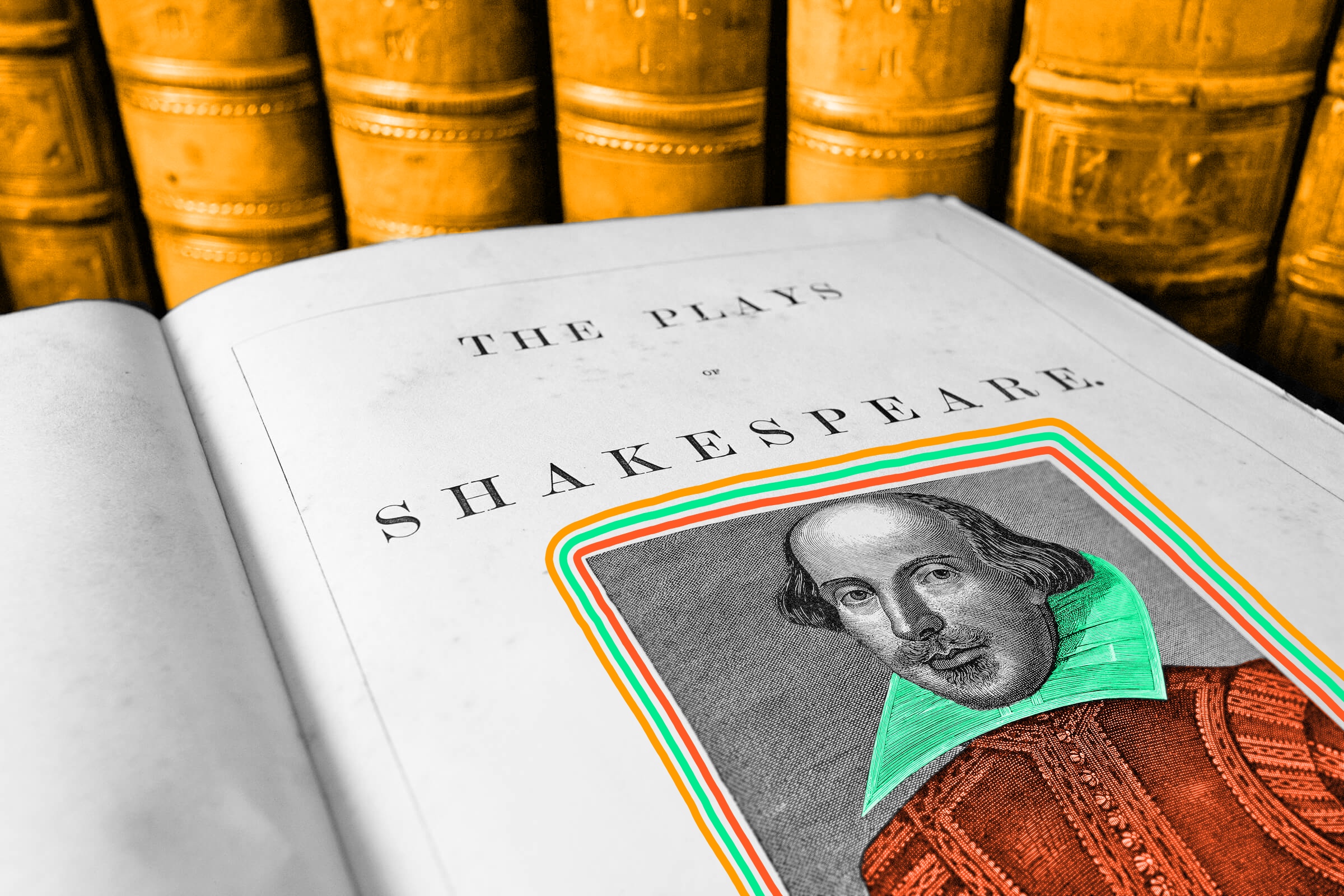
Knock-knock jokes may have originated in Shakespeare's "Macbeth."
Modern English wouldn’t be the same without William Shakespeare. Thanks to the Bard’s plays and sonnets, more than 1,700 words have been added to our language. But Shakespeare did more than just spice up the dictionary; he may also have invented one of the world’s greatest (or worst) comedy setups — the knock-knock joke. Strangely, the joke isn’t found in one of Shakespeare’s masterful comedies. Instead, it’s embedded within one of his darkest, most intense works.
The beginning of Act 2, Scene 3 of Macbeth, after the tortured title character has just killed King Duncan, is known as the “porter scene.” It opens with a drunken porter (or gatekeeper) at Macbeth’s castle hearing a distant knock, pretending to be the porter of “hell-gate,” and saying, “Knock, knock, knock, who’s there?” Adding a bit of comic relief, the porter imagines the arrival of a farmer, an equivocator, and a tailor, using the same “knock-knock” construction each time. Although there’s none of the eye-rolling wordplay central to the modern knock-knock joke, this is the first known reference to a “knock, knock/who’s there” sentence structure in the context of comic relief. Yet it wasn’t until the 1930s that the modern knock-knock joke really caught on, as a reassuringly predictable form of comedy during the Great Depression. In other words, across its 400-year history, it seems the knock-knock joke has a knack for bringing levity to dark times.
Mac Bethad mac Findláich, also known as Macbeth, was born around 1005 in Scotland. In August 1040, Macbeth killed King Duncan I to become king of Scotland — but that’s where any similarities end with Shakespeare’s famous work. Macbeth wasn’t tortured by his actions, as far as we know: Instead, he flourished as king for more than a decade, ruling magnanimously, imposing order, and even pulling off a few successful military campaigns. So where did the Bard’s portrayal come from? Shakespeare, along with his contemporaries Christopher Marlowe and Edmund Spenser, based much of their work on the 16th-century English historical text known as “Holinshed's Chronicles.” Modern historians have identified this chronicle as pretty inaccurate thanks to tensions among its multiple authors, each with different religious backgrounds, among other issues. “Holinshed’s Chronicles” is the reason behind Shakespeare’s monstrous-looking Richard III, and why Macbeth is such a tormented soul.

